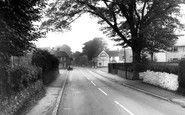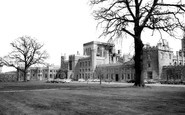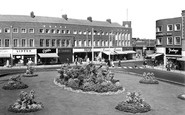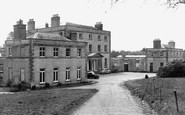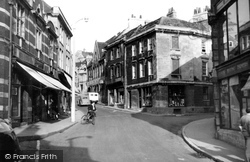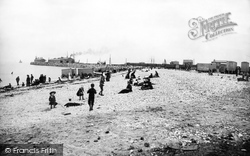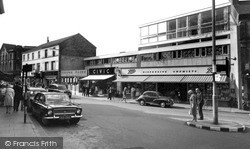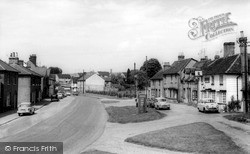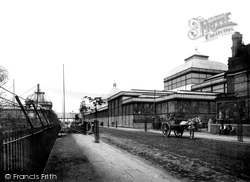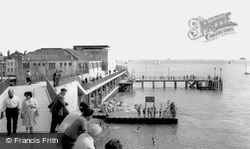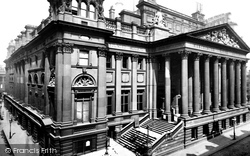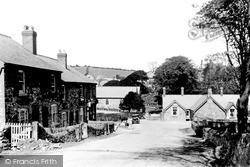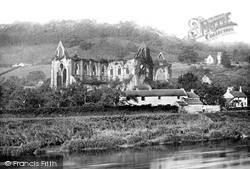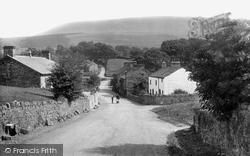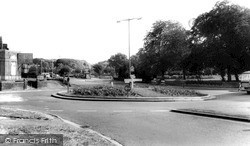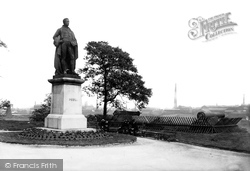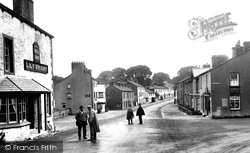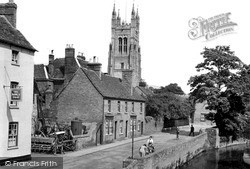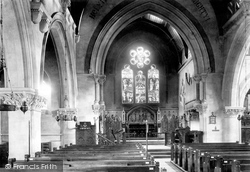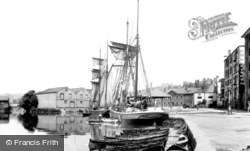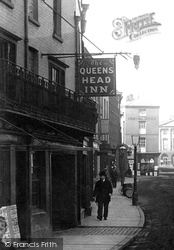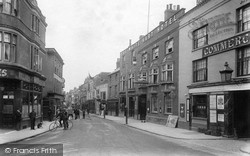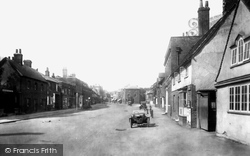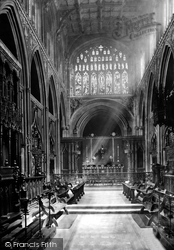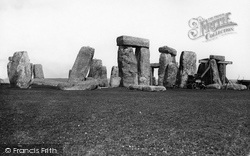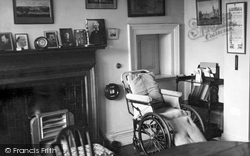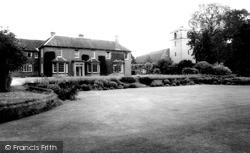Merry Christmas & Happy New Year!
Christmas Deliveries: If you placed an order on or before midday on Friday 19th December for Christmas delivery it was despatched before the Royal Mail or Parcel Force deadline and therefore should be received in time for Christmas. Orders placed after midday on Friday 19th December will be delivered in the New Year.
Please Note: Our offices and factory are now closed until Monday 5th January when we will be pleased to deal with any queries that have arisen during the holiday period.
During the holiday our Gift Cards may still be ordered for any last minute orders and will be sent automatically by email direct to your recipient - see here: Gift Cards
Places
3 places found.
Those places high-lighted have photos. All locations may have maps, books and memories.
Photos
68 photos found. Showing results 2,041 to 68.
Maps
12 maps found.
Books
15 books found. Showing results 2,449 to 15.
Memories
7,564 memories found. Showing results 1,021 to 1,030.
Village Shop
I lived in the bungalow at the end of the spinny on West Avenue in the late 1960s and went to Highcroft School from age 4 to 5, which was an old Victorian building which always smelt of tomato soup and stood on the corner of ...Read more
A memory of Castle Bromwich in 1960 by
The Court In Diss
I lived in the Court in Diss as a 3 and 4 year old girl. My father was in the US Airforce so we moved all over the world. The Court has special memories for us. My sister Sharon was born in the house. I remember beautiful gardens, ...Read more
A memory of Diss in 1954 by
The Laws Kingennie
The Laws was a beautiful mansion-house in a perfect setting. The drive from the gardener's cottage (Mr Robb) up to the big house was a wonderful journey past mature trees, past the famous rock-gardens and lily pond, the ...Read more
A memory of Kingennie House in 1940
Our Street
Our Street was named Aston Street at the back of the Kings Arms pub in Rochdale Road. It was an amazing little street with a tripe shop and pies at the top of the street, a garage next door which housed Johnny Raffo's Ice Cream Vans, ...Read more
A memory of Collyhurst in 1949 by
Robertsons Of Forres Findhorn
I remember a couple of summer holiday's in Forres in the early 1960s. The Robertsons have lived in Forres since the mid 18th century, in various locations, Market Street, Urquart Street, High Street and Findhorn. My ...Read more
A memory of Forres by
Dont Tell Him Pike!
Staying at North Lopham back in 2002 with my friends I decided to spend the day at Bressingham Steam Museum and Gardens,where the annual 'Dad's Army' exhibition was taking place. As a fan of the TV series it was an opportunity ...Read more
A memory of Bressingham in 2002 by
Northchurch High Street
I recently started to research my family tree. I myself have been living in Northchurch for 19 years. I was very suprised to find that my grandfather was born in Cheddington and raised there, as were his siblings, parents ...Read more
A memory of Berkhamsted in 1900 by
Bull Ring And Market
I have just been back to Wakefield for a short break. I knew what to expect before I set off. But still don't know whose idea it was to do away with the old Bull Ring which I thought made it look more like a city. Why take away ...Read more
A memory of Wakefield in 1959 by
Shute In The Early 1950s
As Anne Tilbrook, I was a pupil at Pippins and then Shute, from 1950-53. I vividly remember Feb. 6, 1952, when the girl who rang the bell for change of classes brought us the news that King George VI had died. We all cried and ...Read more
A memory of Shute in 1952 by
I Remember Southall
I moved to Southall when I was 5 with my family, went to live at Cornwall Avenue and then went to Lady Margaret School, left there when I was 11 went to Dormers Wells, at 12 we moved to Trinity Road, I still went to Dormers Wells ...Read more
A memory of Southall in 1940 by
Captions
2,501 captions found. Showing results 2,449 to 2,472.
On the left, next to the only brick façade in town, is J F Goodall, linen draper and outfitter. Stockings, corsets and buttons from the old shop are on display in the museum.
'The sands', says the Frith title, but as you can see, central Morecambe has always had a pebble beach, especially at high tide.
This view looks back towards Woolworth's from Bakehouse Hill, where the mini-roundabout marks the convergence of the High Street, Gold Street and Lower Street.
In many a village, the loss of its transport system and main employer in the course of a couple of years would have sounded its death knell; but for Standon the situation could not have been more different
This is a good close-up view of the main exhibition building that backed onto Talbot Road, which got its name when Sir Humphry Trafford married Lady Annette Talbot in 1823.
On 17 April, Mr Crabb had stayed overnight at the Sallyport Hotel in Old Portsmouth. That evening Crabb went to Havant and caught a train back to Portsmouth.
James Murgatroyd was the architect, and it was he who was invited back in April 1892 to oversee the taking down of the portico entrance and the bringing out of the front of the building to the pavement
This view looks back towards Woolworth's from Bakehouse Hill, where the mini-roundabout marks the convergence of the High Street, Gold Street and Lower Street.
The village was once the seat of the diocesan church of St Asaph (Llanasaph), which dated back to the 13th century.
It is difficult to imagine from this idyllic scene, including the parish church of St Mary on the hillside (right), that Tintern was once heavily industrialised.
This ancient and beautiful village dates back to Saxon times. The beacon on Pendle Hill is said to be Saxon, and the field known as Kirkacre was in existence when Alfred the Saxon was chieftain.
The roundabout is situated at the crossing of the Icknield Way (the A505) and the A10.
This is a wonderfully patriotic photograph of the monument to Lancashire lad Sir Robert Peel, standing in the park named after him.
The road running through the village is the A59 from Clitheroe to Skipton. Note the New Inn on the left of the picture, and how large the name-board of the publican was.
Next to the Bushel & Strike public house (left), in what was the Bell Yard, stands Ibbett`s blacksmith and engineering workshop`s outside store.
Inside this expansive parish church the many signs of the Early English era are manifest in the pulpit, for instance, which is inscribed and dated 1631 on a large arched panel with a good helping
Exeter City Basin opened in 1830 as the final stage of a canal development going back to 1563.
The town was getting bigger. It began to spread westwards along Brochole Street (now Duke Street). The High Street itself was filling up.
The town was getting bigger. It began to spread westwards along Brochole Street (now Duke Street). The High Street itself was filling up.
The Icknield Way was a pre-Roman, Iron Age trading route running along the northern border of Hertfordshire. At Baldock it formed the length of White Horse Street and Hitchin Street.
The Lady Chapel is behind the high altar; unfortunately, all the lovely stained glass seen here was blown out in December 1940 when the cathedral was bombed.
Stonehenge is the most well- known stone circle in the world.
The home of George Bernard Shaw has remained unchanged since his death: his hat still hangs in the hall, whilst his typewriter stands on his study desk where he wrote 'Pygmalion', 'Back to Methuselah'
The church is unbuttressed, with a west tower and Perpendicular bell-stage and a very fine chancel all dating back to the 13th century.
Places (3)
Photos (68)
Memories (7564)
Books (15)
Maps (12)



